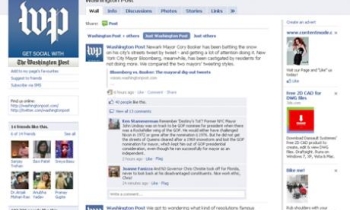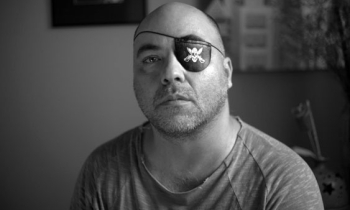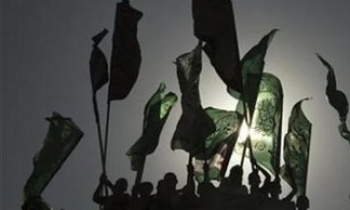Let me come forward and speak up for The New York Times.
No, I'm not saying I necessarily would have published its story on a program to track terror financing, a story that has put the paper again at the center of a furious storm.
But I know from experience that it's almost impossible to put yourself into an editor's shoes, to know all the factors that went into such a decision. Sometimes, frankly, we can't fully reveal what leads us to our conclusions.
I can understand why Times editors would have been skeptical of President Bush and his top aides when they tried to dissuade them from publishing. But if former Democratic Congressman Lee Hamilton and former New Jersey Gov. Tom Kean, co-chairs of the 9/11 Commission, weighed in against disclosing the program, as it appears they did, I believe I would have found it difficult not to take their counsel.
The Rocky Mountain News, by the way, did publish an edited version of the Times story, in part because it mentioned local companies. But we didn't face the difficult decision confronted by the Times.
Once the paper broke the story on its Web site, it spread quickly, and there was no turning back.
What really bothers me about the heated attacks on the Times is how they go beyond this story or other hot-button stories to paint the paper with a broad brush as unpatriotic or unreliable. (And before critics of the liberal media jump on me here, let me remind them how critical I was of the Times' then-appallingly lax standards on anonymous sources that came to light during the Jayson Blair scandal.)
Since Sept. 11, 2001, it's hard to think of a news organization that has reported more courageously or with more distinction on the war on terror and its impact than the Times.
It's daunting to live up to the responsibility of the press to cover the war in Iraq. The danger there is so great that most news organizations have pulled out or rarely send journalists.
The commitment of the Times to live up to its role as a national newspaper by remaining in Iraq and providing relentless coverage - reporting that, too, sometimes is subject to criticism - is admirable. The work of reporters John Burns and Dexter Filkins and the paper's other staffers in Iraq has in many cases been exceptional.
My belief is that newspapers should report aggressively and publish thoughtfully.
That approach puts editors in uncomfortable positions, which is as it should be. They, not reporters, have to decide what's appropriate to publish.
In this case, the Times' James Risen and Eric Lichtblau are seasoned reporters who are experts on the national security beat. I'm sure they find out about things all the time that we never hear about. That's what good reporters do.
I was reminded of that again this week when the Jefferson County sheriff released more than 900 pages of Columbine documents. Our three reporters on the story had covered Columbine since April 1999. Of course in that time they've learned things that we didn't print, for a range of reasons.
We at the Rocky try never to forget that we are citizens first.
About 20 years ago, Mike Wallace and the late Peter Jennings were asked a question during a panel discussion taped for PBS at Harvard University.
According to numerous Web accounts, Wallace rebuked Jennings for saying that if he were traveling with enemy troops preparing to ambush American soldiers, he would warn the Americans, even if it meant losing the story or his life. (My position would have been that American journalists shouldn't travel with enemy troops in the first place.)
Didn't Jennings have a higher duty, moderator Charles Ogletree asked Wallace, than to roll film as American soldiers were being shot? "No," Wallace said. "You don't have a higher duty. No. No. You're a reporter!"
Sadly, Jennings appeared to back down and shifted to Wallace's side.
Understandably, their position outraged a Marine colonel on the panel.
But just as we shouldn't judge the actions of all soldiers or Marines by the actions of a few, we shouldn't judge a newspaper by a single decision, or even a few decisions.
Editors are human. They're going to make mistakes. Although it's not clear to me that those at the Times made one in this case.
But even if they did, it's beyond belief to suggest, as columnist Michelle Malkin did in our Commentary section Thursday, that readers should never trust New York Times headlines or what's printed beneath them.
The accuracy of the controversial Times story is not questioned. Only whether it should have been published.
That sounds about the way our Founding Fathers would have wanted it.
John Temple is the editor, publisher and president of the News. John Temple can be reached at editor@RockyMountainNews.com or by mail at 100 Gene Amole Way, Denver, CO 80204.









